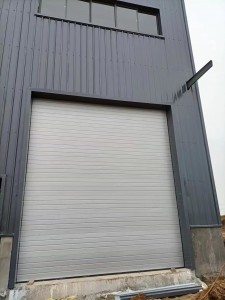introduce:
Garage doors are an essential part of every home, providing security and convenience. However, it is often the garage door springs that bear the brunt of heavy loads and constant use. To ensure the life and proper functioning of your garage door springs, it is critical to take precautions. In this blog, we will discuss the importance of spray coating your garage door springs and recommend some suitable lubricants to keep them running smoothly.
The Importance of Lubricating Garage Door Springs:
Garage door springs play a pivotal role in balancing weight and balancing forces on your garage door. These springs are under constant tension and compression as they support the weight of the door during opening and closing. Over time, these stressors can cause spring wear, resulting in squeaking, poor performance, and possibly damage to other garage door components.
Applying lubricant to the spring will help reduce friction and prevent excessive wear. It also reduces noise levels and improves the overall performance of your garage door. Regular maintenance, including lubricating your garage door springs, can significantly extend their life and ensure optimal function.
Choose the right lubricant:
When choosing the right lubricant for your garage door springs, it is critical to consider certain factors. First, choose a lubricant designed for your garage door or garage door springs. All-purpose lubricants such as WD-40 may provide temporary pain relief, but lack the necessary long-term effects.
Silicone-based lubricants are the preferred choice for garage door springs because they provide excellent lubricity and won’t attract dirt or debris, ensuring long-term smooth operation. These lubricants come in spray or liquid form, so they’re easy to apply directly to the springs. Additionally, a silicon-based lubricant provides adequate protection against rust and corrosion, further extending the life of the spring.
Steps to spraying garage door springs:
To effectively spray garage door springs, follow these steps:
1. Preparation: Make sure your garage door is in the closed position and the power to the opener is disconnected for safety.
2. Clean the Springs: Use a cloth or brush to remove any dirt or debris from the springs. It is imperative to start with cleaning the springs to optimize the effectiveness of the lubricant.
3. Apply Lube: Shake lube can well, then spray a thin coat over springs, covering them completely. Avoid over-lubricating, as excess lubricant will attract dust and grime.
4. Apply lubricant: Apply lubricant evenly to the spring with a clean cloth or small brush. This ensures that the lubricant reaches all necessary areas, providing maximum protection and smooth function.
5. Test the garage door: After the lubricant is evenly distributed, manually operate the garage door to further distribute the lubricant throughout the spring.
in conclusion:
Regular maintenance is essential to keep your garage door springs in top condition, ensuring smooth operation and longevity. Spraying your springs with a suitable lubricant, such as a silicone-based lubricant, is an essential precaution to reduce friction, noise, and potential damage. By following the steps outlined in this guide, you can effectively lubricate your garage door springs and maintain the overall functionality of your garage door system.
Post time: Jun-16-2023

